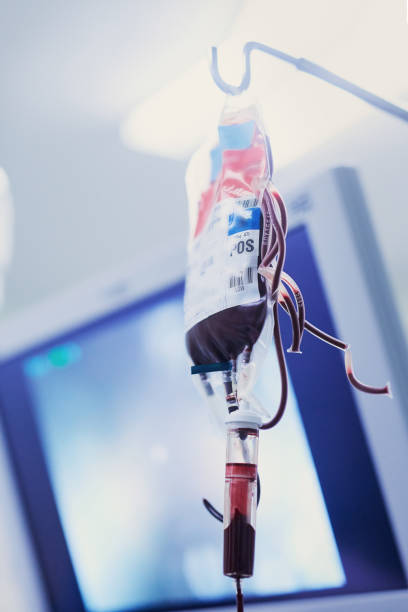Donate Your Body to Science: A Meaningful Legacy
Introduction
Choosing to donate your body to science is a profound and selfless decision that can contribute significantly to medical research, education, and the advancement of science. It is a way to leave a lasting legacy, ensuring that your body will be used to further the understanding of human anatomy, enhance medical practices, and educate future healthcare professionals. This decision is rooted in a deep commitment to the betterment of humanity and offers an opportunity to make a meaningful impact even after death.
The Value of Body Donation
The donation of human bodies to science provides invaluable resources for medical research and education. Bodies are used in various fields, including medical research, anatomy education, and surgical training. By donating your body, you are contributing to the development of new medical treatments and surgical techniques that can save lives and improve the quality of healthcare for future generations. In medical education, cadavers play a critical role in teaching medical students about human anatomy, allowing them to gain hands-on experience that is essential for their training.
The Process of Body Donation
The process of donating your body to science involves several important steps, each designed to ensure that your wishes are respected and that the donation is handled with dignity and care. Typically, the process begins with registering with a body donation program or medical school. Registration involves providing detailed personal information and medical history to ensure that your body meets the criteria for donation. Once registered, your family or legal representatives will be informed about the procedures to follow after your death.
Upon your passing, it is crucial that your family or legal representatives notify the body donation program as soon as possible. The program will then arrange for the transport of your body to the designated facility. The body will be treated with the utmost respect throughout the entire process, and the donation program will coordinate with you to ensure that all necessary legal and logistical details are managed appropriately.
Ethical and Legal Considerations
Body donation is governed by a range of ethical and legal considerations to ensure that the process is conducted with respect and adherence to legal requirements. Ethical guidelines require that body donations be voluntary, informed, and carried out with the consent of the donor or their legal representatives. It is essential that individuals understand the nature of the donation and its potential uses.
Legally, body donation is regulated by state and federal laws that govern the handling and use of human remains. These laws ensure that body donations are carried out in accordance with legal standards and that the rights of the donor and their family are upheld. It is important for donors to be aware of the specific legal requirements in their jurisdiction and to work closely with body donation programs to ensure compliance with these regulations.
Respect and Dignity
Respect and dignity are central to the process of body donation. Donors and their families can have confidence that their remains will be treated with the utmost care and respect throughout the donation process. Body donation programs are committed to maintaining the highest standards of professionalism and ethical conduct, ensuring that the remains are used in a manner that honors the donor’s contributions to science and education.
After the completion of the research or educational use, many body donation programs offer options for the disposition of remains, including cremation or return to the family. This allows donors and their families to make decisions about the final handling of the remains in accordance with their personal preferences and cultural or religious beliefs.
Benefits of Body Donation
The benefits of body donation extend far beyond the immediate impact on medical research and education. Donating your body can help advance scientific knowledge, improve medical training, and ultimately contribute to better healthcare outcomes for individuals around the world. By participating in body donation, you are playing a vital role in the advancement of medical science and the education of future healthcare professionals.
In addition to the tangible benefits to science and education, body donation also provides a meaningful way to leave a lasting legacy. It allows individuals to make a significant contribution to the well-being of others, even after they have passed away. This selfless act can provide comfort to families, knowing that their loved one’s remains are being used for a greater purpose and making a positive impact on the world.
How to Get Started
If you are considering donating your body to science, the first step is to research and choose a reputable body donation program or medical school that aligns with your wishes. Many universities and medical institutions have body donation programs that accept donations for research and education purposes. Contacting these programs directly will provide you with detailed information about their procedures, requirements, and any necessary registration forms.
It is also important to discuss your decision with your family or legal representatives to ensure that they are aware of your wishes and can act on your behalf when the time comes. Providing clear instructions and documentation regarding your body donation can help ensure that your wishes are fulfilled and that the process proceeds smoothly.
Conclusion
Donating your body to science is a profound and meaningful decision that offers a unique opportunity to contribute to medical research, education, and the advancement of science. It reflects a commitment to the betterment of humanity and provides a lasting legacy that can have a significant impact on future generations. By understanding the process, ethical considerations, and benefits of body donation, you can make an informed decision that aligns with your values and desires. Your contribution will help shape the future of medicine and education, leaving a lasting mark on the world.
Choosing to donate your body is a decision that requires careful consideration and planning, but it is a choice that can make a remarkable difference. If you are considering this path, take the time to research your options, discuss your decision with loved ones, and make the arrangements that will honor your wishes and contribute to the greater good.



